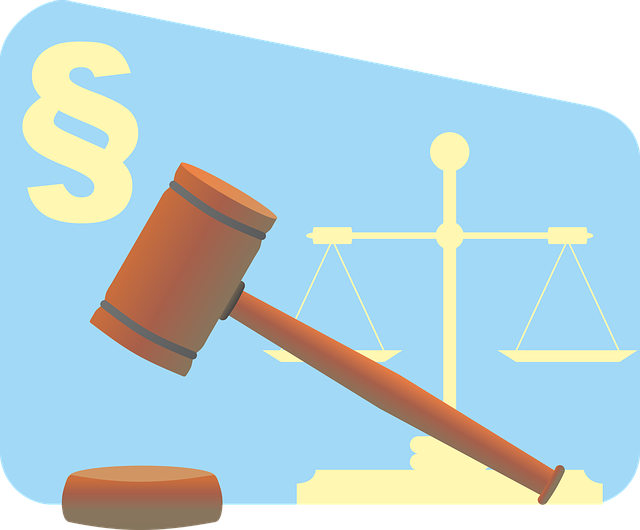Regulatory Fraud Laws combat financial gain through illegal manipulation. While Class Action Lawsuits collectively pursue widespread fraud, leveraging shared resources for efficient justice and substantial settlements, Individual Lawsuits focus on personal circumstances and high-stakes cases like white collar crimes, offering tailored justice and specific damages. Choosing between these strategies depends on harm extent, desired outcomes, and evidence, with legal professionals guiding clients to the most effective approach. Businesses should implement multi-faceted prevention and mitigation strategies, including internal controls, employee training, strong access controls, regular audits, integrity culture fostering, and expert collaboration, distinguishing Class Action vs Individual lawsuits for proactive risk management during investigative and enforcement processes.
Regulatory fraud laws are critical tools in safeguarding the integrity of markets and protecting consumers. This comprehensive overview explores the intricate world of these laws, focusing on their impact in combating fraudulent activities. We delve into two primary avenues for justice: class action lawsuits, powerful tools for collective redress, and individual lawsuits, offering victims direct recourse. Understanding the nuances between these approaches—including scope, damages, and strategy—is essential for businesses aiming to prevent and address regulatory fraud effectively.
- Understanding Regulatory Fraud Laws: A Comprehensive Overview
- The Impact of Class Action Lawsuits in Fighting Fraud
- Individual Lawsuits: Rights and Recourse for Victims
- Key Differences Between Class and Individual Actions
- Strategies for Businesses to Prevent and Address Regulatory Fraud
Understanding Regulatory Fraud Laws: A Comprehensive Overview
Regulatory Fraud Laws are designed to combat illegal activities that exploit or manipulate regulatory frameworks for financial gain, often involving white-collar and economic crimes. These laws are crucial in protecting investors, businesses, and the public from fraudulent practices within regulated industries. Understanding these regulations is essential, as they guide investigations and enforcement actions, which can range from administrative penalties to criminal charges and even class action lawsuits versus individual defendants.
A key distinction lies between a Class Action Lawsuit and Individual Lawsuit. In a class action, a group of individuals joins forces to sue for damages caused by the same fraudulent conduct. This approach allows for collective compensation and can be powerful in holding perpetrators accountable for widespread fraud. Conversely, an individual lawsuit involves a single person or entity pursuing legal redress, which may result in different outcomes but can also lead to complete dismissal of all charges if the plaintiff fails to prove their case.
The Impact of Class Action Lawsuits in Fighting Fraud
Class Action Lawsuits have emerged as a powerful tool in the fight against regulatory fraud, offering a unique approach to holding corporate wrongdoers accountable. Unlike individual lawsuits, which may be cost-prohibitive and time-consuming for victims, class actions pool resources and claims, enabling affected parties to collectively pursue justice. This collective action has a profound impact, as it can lead to significant monetary damages and deter future fraudulent activities by sending a strong message to businesses.
By consolidating multiple cases into one, class action lawsuits streamline the legal process, ensuring that corporate and individual clients face substantial consequences for their illegal actions. This strategy not only provides financial compensation to victims but also raises awareness within philanthropic and political communities, fostering a culture of integrity and accountability. Moreover, the success of these suits often results in improved regulatory frameworks, avoiding indictment and promoting transparency.
Individual Lawsuits: Rights and Recourse for Victims
When individuals become victims of regulatory fraud, they possess rights and legal avenues to seek recourse. Unlike class action lawsuits that aggregate claims from numerous affected parties, individual lawsuits offer a more personalized approach. This path is particularly suited for high-stakes cases involving white collar and economic crimes, where victims may desire not only financial compensation but also justice and accountability.
By pursuing an individual lawsuit, victims can achieve extraordinary results by holding perpetrators liable and potentially securing damages tailored to their unique circumstances. This process empowers individuals to take control of their situation, ensuring that they are fairly compensated for the harm they have endured.
Key Differences Between Class and Individual Actions
When considering a legal strategy against regulatory fraud, understanding the key differences between a class action lawsuit and an individual lawsuit is crucial. Class actions involve a group of individuals who have suffered similar harm from a defendant’s conduct. This collective approach allows for the consolidation of claims, enabling plaintiffs to achieve extraordinary results that may be difficult to attain through individual litigation. By pooling resources and sharing legal costs, class actions can provide a powerful tool in holding wrongdoers accountable for white collar and economic crimes.
In contrast, individual lawsuits focus on the specific experiences and damages of a single plaintiff. While this route may yield substantial compensation for the victim, it can be more resource-intensive and less efficient than a class action. However, individual suits are often necessary when the harm suffered is unique or cannot be adequately represented within a larger group. For his clients facing regulatory fraud, the choice between these two strategies depends on factors such as the extent of harm, desired outcomes, and available evidence—all considerations that legal professionals should carefully navigate to secure justice.
Strategies for Businesses to Prevent and Address Regulatory Fraud
To prevent and address regulatory fraud, businesses must adopt a multi-faceted approach that includes robust internal controls and compliance programs. Firstly, conducting thorough employee training on regulatory requirements and ethical conduct is essential to ensure everyone understands their responsibilities. Implementing strong access controls and data security measures can also deter fraudulent activities by limiting unauthorized access to sensitive information. Regular audits and reviews of financial records and processes help identify potential vulnerabilities and anomalies.
Additionally, businesses should foster a culture of integrity where employees feel comfortable reporting suspicious activities without fear of retaliation. Collaboration with external auditors, legal experts, and industry peers can provide valuable insights into emerging fraud trends and best practices. In the event of suspected regulatory fraud, businesses must distinguish between class action lawsuits, which involve widespread harm, and individual lawsuits, which target specific instances. An unprecedented track record of successful investigations and enforcement across the country underscores the importance of proactive measures in mitigating regulatory fraud risks at all stages of the investigative and enforcement process.
In navigating the complex landscape of regulatory fraud, understanding the nuances between class action lawsuits and individual legal actions is pivotal. While class actions offer a collective force to combat systemic fraud, individual lawsuits provide victims with targeted recourse. Both approaches have their merits and are essential tools in the fight against deceptive practices. Businesses must adopt proactive strategies to prevent and address regulatory fraud, ensuring compliance and protecting themselves from potential legal pitfalls. By staying informed about the evolving legal landscape, companies can better safeguard their interests and contribute to a fairer market environment.






